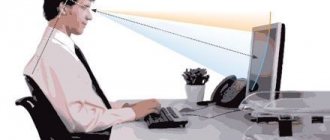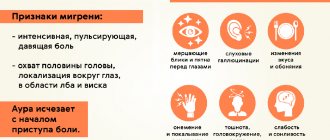A headache can not only distract you from your usual activities. She is capable of exhausting every day, turning life into gray everyday life. What if you have a headache every day? What reasons can cause it? How to behave correctly in such a situation?
Headache is a common problem. It can vary in intensity and can be caused by different reasons, both harmless and quite serious. In any case, this is the result of a violation of normal blood circulation in the brain.
Sufficient blood flow is the key to proper brain function; it maintains the viability of neurons, supplies them with oxygen, nutrients, and energy. Headache can be a symptom of oxygen deprivation. Sometimes it’s enough just to get a good night’s sleep or rest for the condition to return to normal.
Headaches every day can be caused, among other reasons, by strokes and tumors. In this case, regular pills will not relieve pain.
Headache can be acute or persistent. There are cases when it does not stop for weeks or even months.
Chronic cases
Let's figure out what causes headaches every day. If such a condition is observed constantly, from morning to evening, such cases are called chronic. Severe headaches every day can be triggered by lifestyle, environment, or work. Such pain is not a symptom of another disease, but an independent manifestation.
Chronic pain can last up to 180 days. In such cases, a doctor should help you find out why you have a headache every day. He will take a detailed history and prescribe tests, including an MRI.
Types of headaches
If it is already known why the head may hurt, and sometimes even feel dizzy, then an important parameter for determining treatment methods is the type of pain. So, we can distinguish the following types of headaches:
- Pulsating.
- Acute, located on one side of the head or affecting the forehead, temples.
- Pressing headache that covers the whole head.
- Pain accompanied by nausea and even vomiting.
- Pain syndrome in which the head is also dizzy.
What to do if you have a headache and feel sick?
If during a visit to a doctor the patient can accurately describe exactly how the headache hurts, whether it is dizzy, whether additional symptoms are present, the duration and intensity of the pain syndrome, then it will be easier for the specialist to make a diagnosis and prescribe effective treatment.
Causes
If you have a headache almost every day, the main reasons are as follows:
- TBI;
- atherosclerosis;
- hypertension;
- intoxication;
- diabetes;
- osteochondrosis;
- hormone imbalance;
- oncology.
Headaches every day for various reasons are a reason to consult a doctor.
If you don’t find out the exact cause and just numb the pain with another pill, it will come back again.
Nape area
If the back of the head is bothering you, the reasons may be:
- Increased blood pressure. Hypertension is a very common cause. Sometimes it is enough to achieve a steady decrease in pressure to forget about the pain.
- Neuralgia of the occipital nerves. These peripheral nerves can cause persistent pain in the back of the head.
- Pathologies of the cervical spine. Daily headaches can be a symptom of osteochondrosis, compression, or pinched nerve. Also, such unpleasant sensations can appear after a long static load on the neck.
Whiskey
In the temple area, pain may appear after severe psycho-emotional stress. It may also indicate a migraine. The temples can hurt both at once, or separately on the left or right. Other reasons:
- mental stress;
- stress;
- changes in atmospheric pressure.
With migraines, severe headaches are often accompanied by nausea and vomiting. The pain may throb on the right or left side.
When faced with such a problem, many solve it very simply - buy a painkiller. There are a lot of such products sold in pharmacies. They are sold without a prescription, and numerous commercials constantly advise you to buy another miracle drug.
If painkillers do not help, there is reason to be wary and consult a doctor. By the way, uncontrolled use of medications can also cause pain. More often it appears in the temple area, and in medicine it is called abuse.
Forehead
Frontal headaches are very common. It often affects people whose activities involve constant mental work. It can also be triggered by sitting for a long time at a computer, desk, or even communicating with people for a long time. Often this problem is provoked by visual tension or high intraocular pressure.
Programmers, office workers, and managers often turn to neurologists.
Doctors emphasize that the cause of everyday headaches can be:
- toxic poisoning;
- neoplasms in the brain;
- infectious diseases;
- vascular diseases;
- mental pathologies.
Headache is a possible symptom
Daily headaches vary in severity and frequency throughout the day, and can be a signal from the body about an illness. In addition, pain in the head may also be accompanied by other symptoms, such as dizziness, nausea, darkening of the eyes, vomiting, etc. List of possible diseases with a similar symptom:
- traumatic brain injury;
- hypertension;
- cancer;
- osteochondrosis in the cervical region;
- meningitis;
- intoxication;
- glaucoma;
- diabetes;
- hormonal disbalance;
- atherosclerosis.
We should also not forget that most often the cause of headaches that a person experiences every day can be fatigue, overexertion, etc.
What to do
How should one proceed in such cases? It is important to understand that headaches and the reasons that cause them can be different. In most cases, especially if painkillers do not help, it would not be superfluous to consult a neurologist. Often it is he who is able to make an accurate diagnosis and identify a specific cause. This is the main condition for successful and quick treatment.
Let's consider the main diseases and pathological conditions that can accompany headaches.
Hypertension
A fifth of the population has high blood pressure. Hypertension is fraught with vascular atrophy and ischemic stroke, therefore such patients must measure blood pressure every day and, if necessary, reduce it with special medications. They are selected by the doctor individually in each case.
Headache appears if blood pressure exceeds normal pressure levels by 25%. When the pressure stabilizes, it goes away, but in rare cases it can remain for the whole day. In this case, it is worth excluding pathology of the adrenal glands (pheochromocytoma). In this case, the headache will be bilateral, bursting, it often appears in the morning and is localized in the back of the head. Such attacks are quite short (up to 15 minutes).
If you experience frequent headaches that are accompanied by sweating, nausea, tremors, and facial skin flushing, it is worth checking the state of the endocrine system.
In hypertensive patients, pain may occur when sitting for a long time. It is contraindicated for them to stay at the computer for a long time, as the pressure can jump sharply. In this case, not only the hemispheres of the brain suffer, but also the retina of the eyes, the heart, and chondrosis develops over time.
With osteochondrosis of the cervical spine, the condition worsens further because the destruction of brain cells begins. This leads to rapid fatigue, decreased concentration, sleep disturbances, and dizziness. In such cases, in addition to medication treatment, it is recommended to rest more and develop a daily routine.
Well, if high blood pressure is accompanied by fever, cough, chills, or sore throat, this may be a symptom of the flu, ARVI.
Diabetes
With this disease, blood vessels are affected, which disrupts blood circulation and affects all organs and systems of the body. Diabetics may experience headaches as sharp blows, persistent and long-lasting.
If a diabetic has increased blood pressure, he should take the medicine prescribed by the endocrinologist.
Atherosclerosis
With atherosclerosis, cholesterol is deposited on the walls of all arteries. In this case, blood circulation in the vessels of the brain is disrupted, and pathological changes become chronic. The lumens of the arteries quickly narrow, which causes oxygen starvation of the brain. In this case, hypertension may also appear, which will be constantly accompanied by attacks of headache.
Other signs of atherosclerosis: insomnia, memory impairment, irritability, decreased performance. The pain is localized in a separate area and is observed more often in the morning or evening. It may be accompanied by a feeling of a heavy head.
With this pathogenesis, qualified medical assistance is required. Only he will be able to select an effective systemic treatment. It can be supplemented with feasible physical activity, walking outside more often, and resting more.
Hormonal imbalance
Women suffer from it more often (menopause, pregnancy, PMS, hormonal fluctuations in adolescents). Their hormone levels are very unstable and can change. With hormonal disorders, the legs and face may swell, periods become painful, the woman loses or gains weight, she feels nauseous, acne appears, stretch marks on the chest, abdomen, and constipation. With such symptoms, a thorough comprehensive examination is required.
The headache is especially severe during the so-called menopause, when the production of sex hormones gradually stops. If a woman during menopause ignores such symptoms, she may face serious problems, including cancer.
TBI
Traumatic brain injury can cause frequent headaches in the future. Even with a mild TBI, it is still worth seeing a doctor, because it can mark the beginning of regular discomfort.
TBI can be of different types:
- injury;
- concussion;
- compression of the brain.
When a bruise occurs, the tissues swell and a hematoma appears. After one hour or several hours, the pain goes away and no longer bothers you. When a concussion occurs, the pain may persist for several days; when moving, it becomes stronger, dizziness, nausea, weakness, and ringing in the ears may appear. With a severe concussion, the limbs can be paralyzed and speech is impaired.
If a person loses consciousness, this may indicate compression of the brain caused by bleeding from a TBI.
Fatigue
Oddly enough, fatigue can also lead to persistent headaches. A therapist can help in this situation. Most likely, the cause was stress, overwork, and inability to alternate work and rest. It is enough to stop overworking, giving in to stress, and being nervous for your condition to improve.
If no pathologies are identified, simple rules can help return the body to tone:
- While working, take regular deep breaths (several). This is a great way to oxygenate your blood.
- Try to keep your back straight, this will relieve the shoulder area.
- Learn to relax in the evenings, forgetting about problems at work.
- Watch less TV, and rather take a walk in the fresh air.
- To sleep better, take a bath, then you are guaranteed a restful night and deep sleep.
Stress
A person cannot avoid stress at all. One way or another, he is constantly lying in wait for us. A little stress, oddly enough, is even beneficial for the body. They keep our neural connections in good shape, force us to think about every situation and try to avoid annoying mistakes. But constant stressful situations are dangerous for the body. They provoke excessive production of adrenaline, exhaust all energy, lead to disruption of sleep, cardiovascular activity, etc.
Overexertion of stress can cause persistent headaches. It may be preceded by muscle tension, breathing problems, etc. Psychologists advise avoiding unpleasant conversations that can lead to such a negative reaction. This doesn’t always work out, because stress happens not only at work, but also in the family. Here it is important to understand for yourself what is more important: to prove that you are right or to preserve your health and the well-being of those close to you.
It is stress in the family that is considered the most difficult. They can lead to completely unexpected negative consequences. After talking in a raised voice with loved ones, a person can get a stroke or heart attack, so a headache is not the worst option. Psychologists advise avoiding a showdown, leaving the room for a while, being distracted by something pleasant, or just drinking a cup of water. This will dilute the cocktail of hormones and adrenaline in your blood and reduce the degree of tension.
Eye strain
This problem is often faced by people with mental work or those who are forced to constantly work at the computer. But even incorrectly selected glasses or watching 3D movies can cause such pain. The thing is that excessive eye strain affects the eye muscles, leading to painful sensations.
Sleep disorders
Lack of sleep is extremely harmful to the body. Good sleep helps restore strength and relieve mental stress. You should not work or do household chores until late at night. Try to stick to a reasonable routine. Sleep should take at least six hours, and preferably eight.
Long-term use of certain medications
We have already mentioned that frequent use of painkillers can lead to the opposite effect - they will provoke headache attacks. Such attacks can last up to two weeks, and after the patient takes the next portion of the analgesic, it intensifies.
For the unpleasant sensations to go away, it is enough to simply stop taking the analgesic with which the body is fed up. Sometimes doctors may also prescribe a course of antidepressants.
Obesity
Excessive weight can cause a whole range of diseases. One of the symptoms of an onset of illness may be a headache.
Preventive measures
Preventive measures must be carried out according to a certain scheme; their duration may be long, but the results will definitely bring you relief and relief from pain.
For everyday headaches, smoking may be the cause. Nicotine promotes the development of vasospasm and can provoke the onset of a headache attack. Therefore, one of the mandatory recommendations for eliminating nicotine is very important.
If the cause of headaches every day has not been established, it is necessary to use the following procedures and the attack may subside:
- make a compress, soak a towel in cool water, to which you can add mint or lavender oil;
- you can drink herbal tea with mint, chamomile, after which it is advisable to lie down and, if possible, fall asleep;
- do a head massage, use your fingertips to massage your head in a circular motion, starting from the area in which the pain is the strongest;
- ventilate the room or take a walk along the street, preferably in a park or square, away from the roadway.
Some foods affect the amount of tyramine in the body, which leads to increased blood pressure, so their consumption must be limited: cheeses, smoked meats, nuts, red wine.
If you suffer from headaches every day, you need to exclude from your diet dishes that use a large amount of spices, red pepper, and soy.
In this situation, chocolate must also be consumed in limited quantities, because the phenylethalimin it contains affects the functioning of nerve cells.
Sausages contain a large number of artificial additives and flavor enhancers, which adversely affect the functioning of many organs of your body.
For severe daily headaches, the following medications are prescribed:
- "Sumatriptan";
- "Sumamigren";
- "Amegrenin";
- "Zomig."
Such medications should be taken only as prescribed by a doctor. During pregnancy and lactation, as well as people over sixty-five years of age, they should not be taken.
The most dangerous diseases
Among the most dangerous diseases that are accompanied by pain in the head are meningitis, glaucoma, and cancer.
Meningitis
With meningitis, the membranes of the spinal cord and brain become inflamed. If not treated immediately, death may occur. Brain swelling begins, intracranial pressure increases, and pain receptors are intensely irritated.
A sure symptom of meningitis is a bursting and very severe headache, the location of which is difficult to determine. It is accompanied by high skin sensitivity, nausea, and vomiting. Even patients who are in a coma may feel severe pain when the doctor touches their scalp.
Glaucoma
With glaucoma, the optic nerve is affected, not only pain in the head appears, but also general weakness and nausea. It is important to consult a doctor at the first symptoms, because glaucoma leads to irreversible blindness.
Cancer
When you have brain cancer, headaches are a must. It is observed at night or in the morning, since the neoplasm is capable of releasing many toxins that disrupt normal blood circulation. When blood stagnates, cerebral edema begins. Another symptom is sudden vomiting, often not preceded by nausea.
If medical care is not provided, the condition of such patients worsens. Hallucinations, confusion, inappropriate behavior may appear, and the headache intensifies.
Possible consequences
Regular pain in the head is a consequence in itself that can occur if you start treating the disease; it can also be a signal from the body about the appearance of health problems. In addition, the pain can develop into a serious illness - migraine, if you do not take action to get rid of the pain. Consequences of daily headaches may also include:
- dizziness,
- nausea,
- prostration,
- vomit,
- depression,
- insomnia,
- temperature, etc.
People's secrets
Do not overuse painkillers. They will initially relieve discomfort, but over time they can lead to the opposite effect. The body will become fed up with the drug.
To start, you can apply a regular cold compress or a simple cabbage leaf to your head. Such folk remedies can help in some cases. Aromatherapy can also have a positive effect. To relieve headaches, use aromatic oils of chamomile, lavender, rose, marjoram, and lemon. You need to take a drop of oil on your fingertips and gently massage your temples for several minutes.
If you have regular attacks, you should definitely visit a doctor. Unfortunately, it often happens that a patient suffers from headaches for months, regularly takes painkillers, and at this time a dangerous disease develops inside the body.
The worst case is if the patient ignores the manifestations of a malignant tumor. It is capable of growing very quickly, creating many metastases throughout the body. At the same time, modern medicine can quite successfully combat the manifestations of cancer and prolong the patient’s life for 2-5 years, achieving stable remission.
Quick help at home
As a rule, headache attacks can occur in a variety of places; in order to alleviate the condition, it is important to stop exposure to the irritating factor as soon as possible. Next, you should lie down on a flat surface and get rid of tight clothes. The circulation of fresh air is very important; just open the window. To reduce the severity of pain, you can massage the temporal area with circular movements.
You can also use folk recipes. However, it is best to consult your doctor first.
Diagnostics
In addition to collecting anamnesis and examining the patient, the following measures may be prescribed to make a diagnosis:
- MRI of the brain;
- EEG;
- lipid profile;
- Doppler ultrasound of the vessels of the neck and head;
- blood composition analysis.
Additional consultation with a specialist (psychiatrist, neurosurgeon, ophthalmologist, etc.) may be required.
In some cases, for example, when a tumor develops, it is very important not to waste time. Therefore, you should not put off going to the doctor if you notice that your head is constantly bothering you. Don't be tempted to just take another pill - maybe it will help. Such frivolity can cost you dearly!
Half of all cases of persistent headache are easily relieved. It is enough to adjust your daily routine, nutrition, monitor your blood pressure, avoid stress, and exercise. If a person is weather-sensitive, on difficult days you need to rest more, avoid overwork, complex brain activity, and stressful situations. Men should avoid physical activity. These tips help not only adults, but also children. If the pain does not go away, it is necessary to treat not it separately, but the cause that caused such a symptom.
What to do for headaches
First of all, you should consult a doctor if you have a headache every day for a long time, so self-medication is recommended only in the initial period. Depending on the type of pain and its severity, the doctor will prescribe the necessary tests, which may include:
- general and clinical blood test;
- Doppler ultrasound (otherwise known as Doppler ultrasound) of the vessels of the cervical spine and head;
- MRI of the cervical spine, brain, and back;
- electroencephalography (otherwise EGG);
- lipid profile;
- consultation with an ophthalmologist, psychologist or other specialists.
It is important to find out the nature of the pain and identify the cause of its occurrence, and then get rid of it. Tablets (analgesics and painkillers) only temporarily reduce headaches and therefore are not a solution to the problem.
You can usually get rid of most types of headaches by doing the following:
- taking a shower or warm bath;
- a walk in the fresh air;
- massage of the head, temples or back of the head;
- physical warm-up of the shoulders and neck;
- warm milk with a small amount of honey or hot tea with valerian, lemon balm, motherwort and other herbs with a calming effect.
For more severe pain, it is recommended:
- breathe fresh air more often (walk and ventilate the room where you are);
- Avoid noise and harsh sounds if possible;
- maintain a strict sleep schedule - sleep 6-7 hours per day;
- avoid odors and strong tastes;
- apply a cold compress to the forehead;
- use aromatherapy with lemon, lavender, rose and other oils;
- include more vegetables and fruits in your diet;
- avoid sudden changes in temperature;
- in cool weather, use a hat;
- avoid stress and anxiety;
- use deep breathing exercises that involve the abdominal muscles;
- Doctors advise sleeping in a room with good ventilation and average temperature;
- repeat eye exercises daily;
- drink enough fluids throughout the day;
- relax the muscles of the shoulders and neck with massage;
- take vacation if possible;
- turn on the TV or computer as little as possible;
- plan rest and work time.










